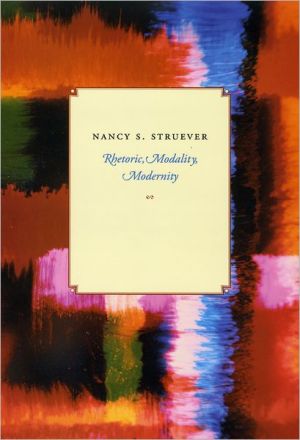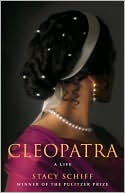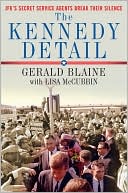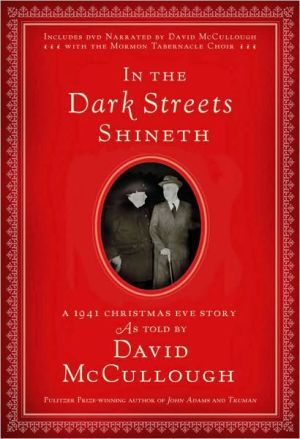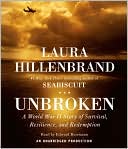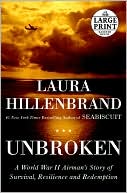Rhetoric, Modality, Modernity
Since antiquity, philosophy and rhetoric have traditionally been cast as rivals, with the former often lauded as a search for logical truth and the latter usually disparaged as empty speech. But in this erudite intellectual history, Nancy S. Struever stakes out a claim for rhetoric as the more productive form of inquiry.\ \ Struever views rhetoric through the lens of modality, arguing that rhetoric’s guiding interest in what is possible—as opposed to philosophy’s concern with what is...
Search in google:
Since antiquity, philosophy and rhetoric have traditionally been cast as rivals, with the former often lauded as a search for logical truth and the latter usually disparaged as empty speech. But in this erudite intellectual history, Nancy S. Struever stakes out a claim for rhetoric as the more productive form of inquiry. Struever views rhetoric through the lens of modality, arguing that rhetoric’s guiding interest in what is possible—as opposed to philosophy’s concern with what is necessary—makes it an ideal tool for understanding politics. Innovative readings of Hobbes and Vico allow her to reexamine rhetoric’s role in the history of modernity and to make fascinating connections between thinkers from the classical, early modern, and modern periods. From there she turns to Walter Benjamin, reclaiming him as an exemplar of modernist rhetoric and a central figure in the long history of the form. Persuasive and perceptive, Rhetoric, Modality, Modernity is a novel rewriting of the history of rhetoric and a heady examination of the motives, issues, and flaws of contemporary inquiry.
Rhetoric, Modality, Modernity\ \ By NANCY S. STRUEVER \ THE UNIVERSITY OF CHICAGO PRESS\ Copyright © 2009 The University of Chicago\ All right reserved.\ ISBN: 978-0-226-77748-1 \ \ \ Chapter One\ Introduction: The Classical Background \ This essay considers rhetoric as, simply, a kind of inquiry, and argues the importance of a specific investigative interest, simultaneously basic, pervasive, and elusive—modality. "Modal rhetorics" need to be juxtaposed to modal logics. Rhetorical interests, tasks, performances—all are informed by the press of possibility, the discrimination of the actual, the response to necessity and contingency. And rhetoric as hermeneutic, as a specific, traditional contribution to understanding civil interests, tasks, performances, carried in texts, signs, deeply engages modality as primary quality of civil experience. Modal logics may define structures of validity, inferential sequences; modal rhetorics deal in patterns of use. My interest is in mode as color or valence, regarded as of the utmost importance to issues of political capacity and action.\ Briefly, I am assuming that in civil inquiry the opposition philosophical /rhetorical inquiry is of intrinsic interest; that an inquiry's allegiance to a particular modality defines its most basic strategies; and that the mechanics of representing a modal allegiance generate a refined, perspicuous account of investigative goals. The Classical, and archetypical "contest of faculties," rhetoric vs. philosophy, originated, and persisted, not simply as a rivalry of pedagogic practices and academic interests, but as a conflict of claims and counter-claims concerning morality, truth, and utility in inquiry, an opposition that resurfaces in attenuated or exaggerated form throughout pre-modernity, and, I shall argue, informs, still, the issues of morality, truth, and utility in Modernist political investigations.\ Yet, the history of rhetoric describes its interests as carried in a most dishevelled rhetorical tradition, a very large body of practical manuals and theoretical expositions, containing "a very loose, indeed, ramshackle collection of discursive problems and solutions, all stained—dyed, to use Montaigne's metaphor—by a discursive pessimism: by the heavy constraints of negative definitions of the nature of human discursive capacity, and of the relation of discursive to cognitive capacity; by the embodiment of discursive practice in a matrix of communicative needs; and by the close relationship of communicative need to political possibility." And, rhetoric's consuming interest in possibility, thus modality, is key, not simply to the Classical opposition of rhetoric and philosophy as an originary defining moment in inquiry, distinguishing oppositional beliefs and procedures, but key as well to the issue of "modernizing." In discriminating rhetoric's engrossment with possibility, it specifies rhetoric's peculiar civil capacities, and makes a case as well for rhetoric's remarkable capacity for renewal, for "modernizing," the reinvention of its civil strategies in response to novel civil affairs. As corollary, the history of philosophy describes the positives and negatives of philosophy's allegiance to systemic necessity, and its capacity for systemic renewal, with its modal commitment to necessitarian truth. Still, the opposition should work, not as an exhaustive binary opposition, not as an insoluble antinomy, but as a vivifying argument about values and procedures, giving rise to novelty and careful correction. "Modernizing" rhetoric is mapping the current possibilities of investigative innovation and critique in the civil operations rhetoric properly regards as its domain. And, as we shall see, "the massive presence of contingency" Robert Pippin attributes to the high culture of Modernity requires the modern investigators' zealous canvassing of possibilities, a devotion to range of response.\ The description of rhetoric as inquiry should employ, in my view, the Peircian pragmatic approach, advocated in his "Fixation of Beliefs" and his "How to Make Our Ideas Clear"; where he claims the investigative core is the set of beliefs that generate the habits of action in inquiry. Inquiry is simply "the struggle to attain a state of belief" (FB, 47); the sole motive of thought is to produce beliefs ..."; "the essence of belief is the establishment of habit [rule of action]" (HMIC, 13). Peirce's linkage of beliefs and habits gives us a formula marked by modesty and, happily, "rhetoricalness." The modesty, or radical inclusiveness, is of use to the consideration of inquiry in general, while the rhetorical values resonate with rhetoric's topical concerns: its engagement with a community's beliefs, shared opinions (endoxa), and with rhetoric's inveterate habits of activity, persuasion as practice and goal.\ He offers a narrative of investigative process as continuous, "possibly" open-ended, with the goal of truth, or the desired definition of reality, as something the community "settles down to" (RN, 555), "in the long run" (C, 39). It is essentially in motion, moving from doubt, not as original position, as the skeptic's hyperbolic doubt, but as "irritant," to fixation, (temporary) stabilizing of belief. The process is "only that of valid inference," but, "every sort of modification of consciousness—Attention, Sensation, Understanding—is an inference" (C, 33); the entire range of consciousness is "a sign resulting from inference" (C, 40). It is a process autochthonous, simple, practical, possible. The identity of a habit is how it may lead us to act, "not only under such circumstances as are likely to arise, but under such as might possibly occur"; "there is no meaning so fine as to consist in anything but a possible difference of practice" (HMIC, 63); "the meaning of a thought" indeed, as always to be represented, as representable in future thoughts, is "virtual" (C, 7, my emphasis).\ But, as well, it is a process engaging an astonishingly dishevelled array of elements. Consider the tedious inclusiveness of his list of pertinent factors: not simply beliefs, ideas, signs, but "habits" as a complex rubric of rules and dispositions; feelings, emotions, sensations; also, thoughts as feelings, ideas as "living feelings" (LM, 549); feeling as "mental quality of a material sign" (C, 40); consciousness as material quality, or reduced to material sign (C, 40); belief as "stadium of mental action" (HMIC, 63)—all must be located, assigned value in process, an activity turgid, stained by uncertainty, a process cluttered by demands for (investigative) action. "Impure" inquiry, in short.\ Peircian modesty, impurity, also single out rhetorical competences, and, in effect, make a case for the perspicacity of rhetorical inquiry. Rhetorical competence is vested, primarily, in the Quintilianesque appeal to the strong affect of passions, pathos, and the softer emotions, ethos. Peirce's messy inclusiveness includes affect as element: but note the double structure of affect—affect as feeling, emotion, disposition is a vital constituent of the inquiry process; but also, in "The Law of Mind" he stipulates affect as "affectability," simple interference, with affected, affecting calling to mind the rhetorical concern with communicative production/reception. Affects as motions, versions of feeling, invest habit as an "affective bond" (LM, 551); the Peircian notion of Idea, notes its intrinsic quality as living feeling, notes the energy with which it affects other Ideas, and its tendency to bring along other Ideas (LM, 549). Then, inquiry for Peirce is, basically, rhetorically motivated: "the soul and meaning of thought ... can never be made to direct itself to anything but the production of belief" (HMIC, 63), to deeply committed persuasion (the rhetorical facit fidem), in short. For, inquiry is, only, shared; "the problem becomes how to fix belief, not in the individual only, but in the community" (FB, 50), for the community as the locus of investigative action is crucial as "beyond the vagaries of you and me" (C, 39).\ The description employs as well the compact narrative of Martin Heidegger's SS19 4 lectures on Aristotle's rhetoric: Grundbegriffe der aristotelischen Philosophie. This is a revisionary account of Hellenic thought, designed, perhaps, to make a place for Heidegger in the history of philosophy. Here Heidegger proposes rhetoric as the "originary" discipline of the original argument, the rich political discussion that transpired in the discourse of the assemblies, the courts, and the oratory of the games: the Greeks "lived in oratory." Where Klaus Dockhorn stipulates rhetoric as the second, the alternate Bildungsweg of antiquity, Heidegger asserts that rhetoric was the first chronologically, and that logic, which structures the monologic discourse ascertaining scientific truths, and dialectic, the discipline of the dialogue on the principles of inquiry, are late and derived.\ Then, Heidegger also claims that rhetoric is not an autonomous linguistic techne, but transpires solely inside politics. Thus in Aristotle: being is essentially "being-with-others" (Miteinandersein), and language, the distinctive human capacity, as address to others, is basic to life as political, the zoe praktike meta logou (127, 105). Or, to adapt the perspective of Michel Meyer: rhetoric as negotiating distances between language-users, organizes politics as the discursive negotiation of differences of civil import. The concern of rhetoric with discursive alterations, with effects on others, with persuasion, deemed a weakness by philosophers, must be redefined as a strength. This informs, I suggest, Josiah Ober's claim that we must not look to Greek philosophy for insight into Greek politics, but rather to the evidence provided by oratorical practice, primarily of the 4th century. Greek philosophical work of critique and retrospective justification does not transpire within the authentic political experience, and carries a-political or anti-political motives.\ Aristotle, as the great theorist of rhetoric, as well as of philosophy, helps us a great deal. But the rhetorical as political is the central issue. Rhetoric suffers from, must respond to its initial definition by philosophy—primarily in the Platonic dialogues (Gorgias, Sophist)—as a Sophistic practice (professionally political?): defined pejoratively, it is true, by a "Sophist." The contentious definition was as a discipline which opposed philosophy: rhetoric as relativist, an argumentative competence in finding possible arguments on either side, in utramque partem, confronting philosophy's search for necessary truths. Here rhetoric most certainly had to function as inquiry; there is no way one can develop techniques of persuasion without theorizing basic processes of appeal and reception.\ The Classical history of educational formations narrates the enduring contests, defeats, and successes of the two hegemonous disciplinary matrices: the contesting of claims of necessity, the accusations of relativism, the attributions of truth and of use. The rhetorical tradition certainly carries the weight of Sophistic speculation on communicative needs and limits as posing the elemental political problems. Even the simple lists of figures, or most basic accounts of argumentative tactics are informed by heavy, fraught assumptions. Thus the Classical, pre-modern manuals and pedagogic practices transmit, even in attenuated form, the pessimism and excitement of Sophistic contentions; indeed, technical excellence can modify schoolroom simplicity, expand insight. But if pessimism, then possibility. Sophistic/rhetorical speculation is a continuous engagement with the reciprocal definition of impossibility/possibility in civil affairs. The shifting boundaries of the impossible provide the opportunities for political ingenuity in response, for a constant exercise in arbitration of possible capacity and act.\ There is, then, a very thick history of rhetoric as an alternate formation and oppositional investigative initiative. It seems perverse to argue that there is a larger, encompassing, and archetypically philosophical concern which invests rhetoric with much of its interest and power as inquiry. Negotiating practical life deals in the larger issues of political motive, circumstance, consequence, of, in short, what is, what has to be, what could be. The most inclusive inquiry rubrics are those of modality: necessity, contingency, actuality, possibility. But there is more. Modality is, of course, a defining element of Aristotle's logic; thus, the true is predicated as necessary. In J. Hintikka's account the primitive, basic nature of modality interests is authenticated by the connections with the foundational model of physical structure in the structure of motion; motion is defined as moving from potential to actualization. The key terms are dunamis (potential, power), kinesis (movement, partial realization), and energeia (complete actualization). It is the link between potential (dunamis) and possibility (endechomenon) that is significant for us. Hintikka argued that Aristotle explores modalities in order to disentangle himself from the determinism, self-inflicted, of some of the major necessitarian initiatives of his rationalist system. In his distinction between partial and complete actualization, Aristotle has an opening to "unrealized possibilities" as modifying systemic necessity. Modality, in short, operates in the complete Aristotelian program, not simply the logical/ ontological one. Hintikka also claims that Aristotle did not succeed in disentangling himself; the failure, I would suggest, stems in part from an unresolved tension between philosophy's necessitarian theses, and rhetoric's anti-necessitarian practices. This is, perhaps, another justification of Ober's claim for the political insights of a rhetorical proclivity.\ For, the proper, practical home of modal inquiry is rhetoric. Heidegger's urtext, Aristotle's Rhetoric, states, first, that the task of rhetoric is to "theorize" the "possible means of persuasion," tó endechómenon pithanón, then, that the domain of rhetoric (and dialectic) is the probable, and that it considers, in light of its negotiating task, only that "which could be otherwise." And, political deliberation is about policy; it concerns the future, and thus a primary topos, line of argument, is the Possible, tò dunatòn, and Impossible (R, 139 a 6–8; cf.1391b 27–29). Thus rhetoric's modal proclivity: a supremely tentative project, it seeks possible arguments for possible effect in possible situations. In the Rhetoric we find the first, and perhaps most powerful case for the primitive nature of rhetorical modal interests. Rhetoric II represents a strong appropriation of the psychology of the De anima; the De anima in turn, if we regard it as a "general introductory course on the science of biology," explicates the basic structure of Aristotelian life sciences as the structure of motion; P. Aubenque speaks of Rhetoric II as Aristotle's "fully rhetorised psychology." The excitement here, and it does seem like excitement, is the fit between Aristotle's most basic structure of process and the pertinence of modality issues to defining investigative and performative priorities; the linkage between potential and possibility becomes the engine for exploration of a range of life capacities and actions. Rhetoric performs in a strange domain of motivated possibilities, all needed in some civil scheme, all imbued with value colorations: attributions of purpose, cause, destiny, praise, blame, all embedded in scenarios of realization. Geoffrey Hawthorn, as a historian/social scientist of, primarily, international politics, argues in his Plausible Worlds the heuristic value of Hintikka's "possible worlds" (alternate states of affairs or courses of events) for mapping, locating the actual world. In brief, counterfactuals illumine in explanation; the job of the inquirer is to place actuality in a range of possibilities. Beyond this, rhetoric connects the explanatory and the programmatic, the understanding of the actual political past and the suggestion of political possibilities of the future. Rhetoric both defines and poses possibilities, both finds and creates, energises possibilities. But this task raises more issues; the modal notions must be considered in their relation to each other, but also to the elements of chance, coincidence, and to the hypothesis of determinism, a determinism that would undermine rhetoric's obligations to use and to response, and also to the obtrusive presence of categories of time, truth, change. Political-rhetorical inquiry uses modality to assert, modify, deny, contest activity as political, as negotiating community, to place events in a narrative of governance, to gloss, to give conceptual clarity to potency and act as compatible, or not, with the political. There is a deep compatibility between the very specific analytic techniques rhetoric must develop to fulfill the demands of persuasion, the core political functions, and the very general commitment to the modality of possibility as the domain of rhetorical duty. There is a beneficial interactivity of modal proclivity and analytic habits that energises; it is profoundly non-dismissive.\ (Continues...)\ \ \ \ \ Excerpted from Rhetoric, Modality, Modernity by NANCY S. STRUEVER Copyright © 2009 by The University of Chicago. Excerpted by permission of THE UNIVERSITY OF CHICAGO PRESS. All rights reserved. No part of this excerpt may be reproduced or reprinted without permission in writing from the publisher.\ Excerpts are provided by Dial-A-Book Inc. solely for the personal use of visitors to this web site. \ \
Ch. 1 Introduction: The Classical Background 1Ch. 2 The Modernity of Early Modernity 9Hobbes and Rhetorised Psychology 13Possibilities in Motion 14Hobbes and Rhetorised Argument 25Possible Agency and Possible Plot 36Vico: An Alternate Scenario 42Possible Agency 42Rhetoric and Legal Possibility 45Possible Plots 53Hobbes and Vico 58Ch. 3 From Early to Late Modernity 66Modality Sorts 71An Exemplary Modernism 80Ch. 4 Modernizing Rhetoric: Recuperation and Response 89New Rhetorics 98A Modernist Contest of Faculties 102Ch. 5 Inquiry Possibilities 107Conclusion: Using Possibilities 117Notes 131Index 153
\ James I. Porter“A scintillating account of the classical and early modern roots of political rhetoric, this book could not be more welcome or more timely. In an era threatened on all sides by pessimism and moralism, Struever’s response is to ask how one can produce possibility out of negation. Her answer lies in this vigorous, bold, and often edgy set of reflections which celebrate the powers of positivity, capacity, and life itself. Retrieving rhetoric as civic engagement, Struever offers a completely novel explanation of modernity as modality—less as an epochal marker than as a grasp of potentials and possibilities, and as a rejection of hegemonic determinism. Almost as a bonus, the book is filled with astonishing and original readings of a number of writers, from Aristotle to Hobbes, Vico, and Benjamin, to contemporary interpreters of modernity. Rhetoric, Modality, Modernity is a great gift from a wonderfully resourceful mind, and a joy to read.”\ \ \ \ \ \ Victoria Kahn“In this brilliant and provocative essay, Nancy Struever revisits the quarrel between rhetoric and philosophy and argues that rhetoric is uniquely able to deal with the realm of possibility—the civic or political realm in which actions take place. Struever argues for the neglected modernity of early modernists such as Hobbes and Vico against the classical philosophical and Enlightenment paradigms, for which rhetoric lacks explanatory power. Hobbes and Vico secede from classical philosophical paradigms by virtue of their focus on modality and possibility rather than truth and necessity. Their insights find a modern equivalent in the work of Walter Benjamin, whose investigations into modernity are guided not by philosophy but by a rhetoric that is political at its core. Ranging widely from Aristotle and Cicero to Hegel, Hintikka, Peirce, and Williams, Struever challenges us to rethink the history of philosophy as well as rhetoric, and their relation to our own postmodern moment.”\ \ \
